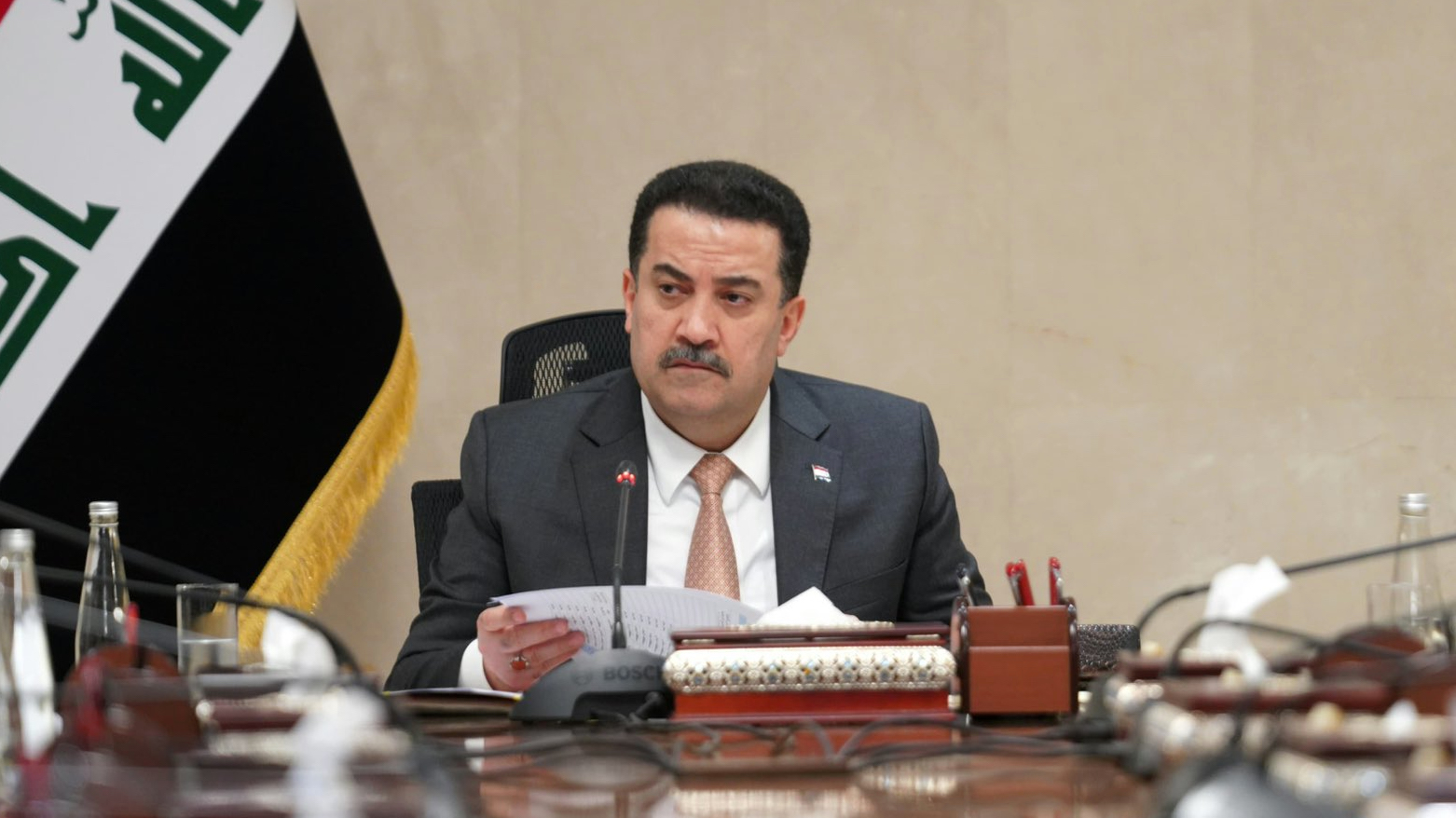U.S. Praises Security Cooperation with Iraq after Talks with Sudani, as Iraqi PM Treads Carefully

WASHINGTON DC, United States (Kurdistan 24) – U.S. officials praised Iraq’s security cooperation, following official conversations with Prime Minister Mohammed Shia al-Sudani. Sudani is treading carefully between Iraq’s partnership with Washington, including its dependence on U.S. forces to assist in the fight against ISIS, and the pressure that Iran exerts on his government, particularly through militias that Tehran supports.
Iran has been a vociferous backer of Hamas in its war with Israel, and pro-Iranian militias throughout the region have adopted a similar posture. Indeed, as The Wall Street Journal warned on Wednesday, “The conflict risks spilling over into a regional confrontation with Iran and the web of anti-Israel Islamist militant groups that it backs, which spreads from Yemen and Iraq to Syria and Lebanon.”
U.S. Discussions with Sudani
On Saturday, following four successive days of strikes aimed at U.S. forces in Iraq and Syria, the Iraqi Prime Minister publicly affirmed his government’s commitment to protect U.S. troops in Iraq.
Read More: Third Day of Drone, Rocket Attacks by Pro-Iranian Militias
Later that day, two senior U.S. officials spoke with Sudani. One was Secretary of Defense Lloyd Austin, who thanked Sudani “for today’s announcement affirming his government’s full commitment to protect U.S. forces who are in Iraq at the invitation of the Iraqi government,” according to a U.S. summary of their conversation.
Austin noted that U.S. and Coalition forces “remain in Iraq in support of the Iraqi Security Forces to achieve the enduring defeat of ISIS,” the U.S. statement explained.
It concluded, explaining that Austin had also “conveyed the importance of protecting U.S. and Global Coalition personnel and advisors, convoys, and diplomatic facilities.”
U.S. Secretary of State Antony Blinken had a similar conversation with Sudani on Saturday, but it went further in outlining areas of shared concern between the U.S and Iraq.
Blinken welcomed the Iraqi government's “condemnation of the recent attacks and threats to U.S. and Coalition personnel in Iraq,” and he urged Sudani “to pursue those behind the attacks and fulfill Iraq’s commitment to maintain the security at these installations,” according to a U.S. summary of their discussion.
The two men also discussed the war between Israel and Hamas, and both affirmed their intent to coordinate to address the deteriorating humanitarian situation in Gaza.
The U.S. summary concluded by affirming that they had “renewed their commitment to continue strengthening the U.S.-Iraq 360-degree partnership and reaffirmed the principles in the bilateral Strategic Framework Agreement,” which was initially concluded in 2008 in the last days of the George W. Bush administration and reaffirmed by subsequent presidents.
On Wednesday, the U.S. ambassador to Iraq, Alina Romanowski, followed up with a tweet in which she expressed her appreciation for Sudani’s “productive call” with Austin, which had affirmed “the importance of the U.S.-Iraqi partnership in supporting regional security.”
Appreciate Iraqi PM @mohamedshia productive call with @SecDef to discuss the importance of the U.S.-Iraqi partnership in supporting regional security. #USIraq360Partnership.
— Ambassador Alina L. Romanowski (@USAmbIraq) October 25, 2023
The European Union in Baghdad
Also on Wednesday, a delegation from the European Union (EU), led by Jill Rustin, Head of Strategic Planning and Crisis Management in the EU’s Foreign Ministry, visited Baghdad and met with Qasim al-Araji, Iraq’s National Security Advisor.
Citing a statement from Araji’s office, the Iraqi News Agency (INA) reported that the two sides had “reviewed the work of the European Union mission in Iraq and ways to enhance cooperation and partnership.”
Araji expressed “Iraq’s keenness to continue the relationship with the European Union,” INA reported, and “benefit from its expertise to develop the capabilities of our security forces.”
Araji also stressed that “protecting diplomatic missions in Iraq is an Iraqi duty,” and “the Prime Minister supervises this matter.” Sudani, he said, had “issued orders to the Ministry of Interior to tighten measures to protect diplomatic missions.” Thus, no threat exists to the security of missions and embassies in Iraq, Araji assured the visiting EU delegation.
The Militias as Instruments of Iranian Leverage
Rend Rahim, Iraq’s first ambassador to the U.S following the 2003 overthrow of Saddam Hussein’s regime, is basically sympathetic to Sudani.
Writing for the Arab Center of Washington DC, she described how the war in Gaza has strengthened the pro-Iranian militias in Iraq, particularly after the Oct. 17 strike on Gaza’s al-Ahli hospital.
Although Hamas claimed Israel was behind the attack, Israeli officials said—and U.S. intelligence concluded with “high confidence”—it was a misfired Palestinian rocket that had hit the hospital.
“The intelligence community reached its conclusion after examining multiple videos and using geolocation techniques” to trace the blast “to a rocket launched inside Gaza that suffered a mechanical failure mid-flight,” The Washington Post explained.
“An Israeli munition,” the Post continued, “such as a bomb dropped from the air or an artillery round,” would “have caused significant structural damage” and “left a large crater.” However, there was “only light structural damage” to the building.
Hamas’s erroneous claim, nonetheless, shook Iraq’s political scene, as Rahim recounted. “Hundreds of thousands of demonstrators in Tahrir Square the following day and on Friday October 20 denounced the United States and Israel and carried pictures of Iran’s Supreme leader, Ali Khamenei; slain commander of Iran’s Quds Force, Qassem Suleimani; and leader of Lebanese Hizbollah, Hassan Nasrallah.”
“Prime Minister Sudani faces dangerous times,” she concluded. “How the coming weeks unfold depends on Iran’s intentions, over which he has no control.” But, as she also noted, Sudani “is an astute politician.”
